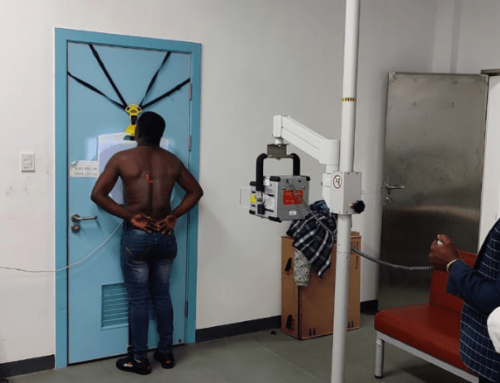Artificial Intelligence (AI) has emerged as a transformative force across various sectors in Africa, and Ghana is increasingly seeing its influence within the healthcare system. From virtual consultations to diagnostic algorithms and health prediction tools, AI is being embraced with optimism for its potential to fill systemic gaps. However, amid this wave of innovation, a critical question remains largely unanswered: how prepared is Ghana to ensure that these AI systems are transparent, ethical, and truly equitable?
As a data scientist and health informatics researcher based in Kumasi, I embarked on a personal investigative journey to examine how AI tools are being adapted and used in Ghana’s healthcare landscape. This work, is driven by one goal—to ensure that as we embrace AI, we do not replicate old injustices with new technologies.
One of the most prominent examples of AI use in Ghana’s public health system is CAD4TB, an AI-powered diagnostic tool that analyzes chest X-rays to detect tuberculosis. Ghana has deployed CAD4TB across more than 50 radiology centers, especially in underserved regions where trained radiologists are scarce. While its speed and convenience are undeniably valuable, little is publicly available about how this tool performs across Ghana’s diverse populations. The algorithm was developed using data from other countries, and its sensitivity and specificity in detecting TB among Ghanaians with comorbidities like HIV or sickle cell anemia is still uncertain. The question isn’t whether AI is useful, but whether it is safe, fair, and appropriately localized.
Telemedicine is another area where AI is quietly reshaping healthcare delivery. Platforms like mPharma’s Mutti Doctor promise patients virtual consultations with doctors in under 10 minutes, using symptom-based triage systems and machine learning to prioritize urgency. For many urban patients, this has reduced their dependence on overcrowded hospitals. Yet, the use of predictive algorithms raises important questions. Who audits these systems to ensure that diagnoses or triage decisions are accurate? Are patients aware of how their personal data is being used to train future models? What security protocols are in place to prevent sensitive health information from being mishandled?
Even more pressing is the role of Ghana’s new National Artificial Intelligence Strategy, launched in 2025. While the policy document lays out a bold vision for AI in public service delivery, including healthcare, it remains largely conceptual. Implementation mechanisms are vague, and there is a notable absence of specific accountability frameworks, data ethics boards, or inclusion metrics for marginalized groups. The government’s embrace of AI is admirable, but it risks becoming performative if there are no tools to measure its societal impact.
My investigation has not only examined policies and technologies but has also incorporated voices from the ground. Health workers in community clinics often feel left out of these AI deployments. Patients are rarely informed about what it means to have their data used by an algorithm. There is a deep disconnect between the developers building these systems and the communities they claim to serve. This disconnect can have serious implications when AI-generated outcomes influence diagnoses, prescriptions, or resource allocation.
To investigate this effectively, I adopted a mixed-methods approach that combines technical analysis, digital forensics, and participatory research. Through explainable AI tools, I was able to visualize how certain healthcare algorithms made decisions—particularly where risk scores were based on skewed datasets. I ran simulations that showed how maternal health prediction models could fail when trained only on urban data, leading to underestimations of risk in rural or low-income women. I used open-source investigative methods to trace how some digital health platforms were funded, discovering complex networks of private tech vendors, foreign donors, and government procurement deals, often without public transparency. Most importantly, I included patients and frontline workers in the investigative process, organizing dialogues where their insights shaped the interpretation of findings.
This work is still evolving, but its significance is already clear. AI has the potential to improve healthcare delivery in Ghana—but without scrutiny, it can also reinforce exclusion, bias, and inequality. Investigative journalism, data science, and health advocacy must work together to demand more transparency, more inclusion, and more ethical design from the technologies that claim to serve us.
For media inquiries, collaborations, or access to future reports and toolkits, you may reach us at contact@veebeckz.tech
